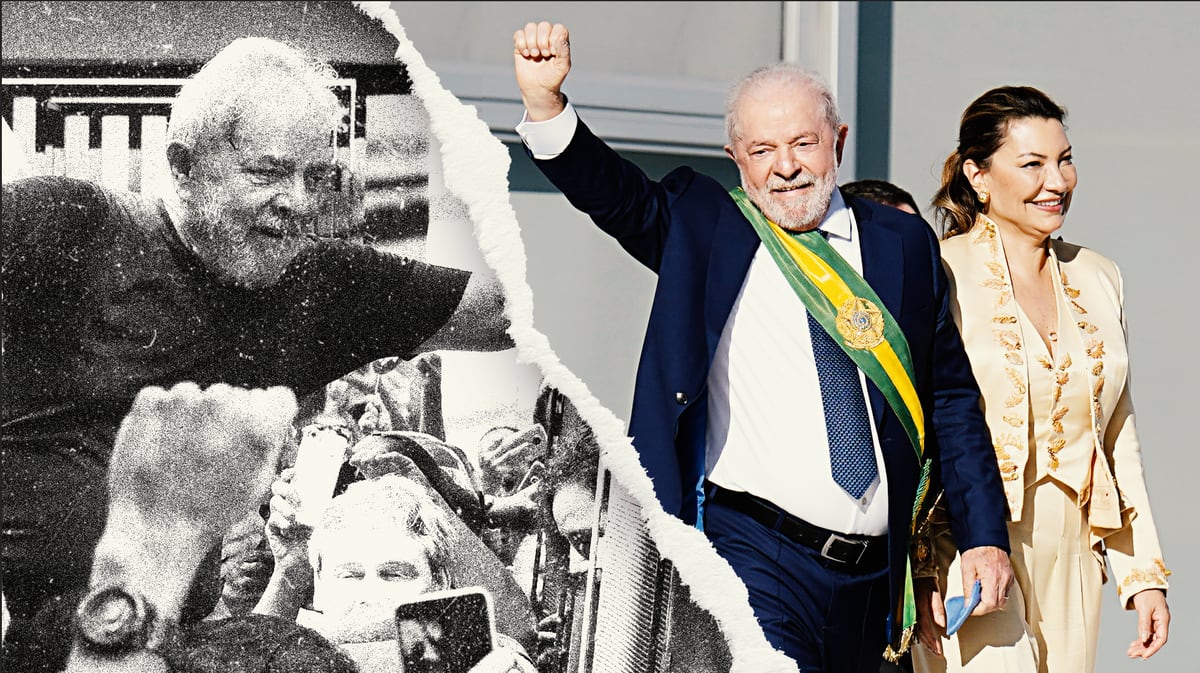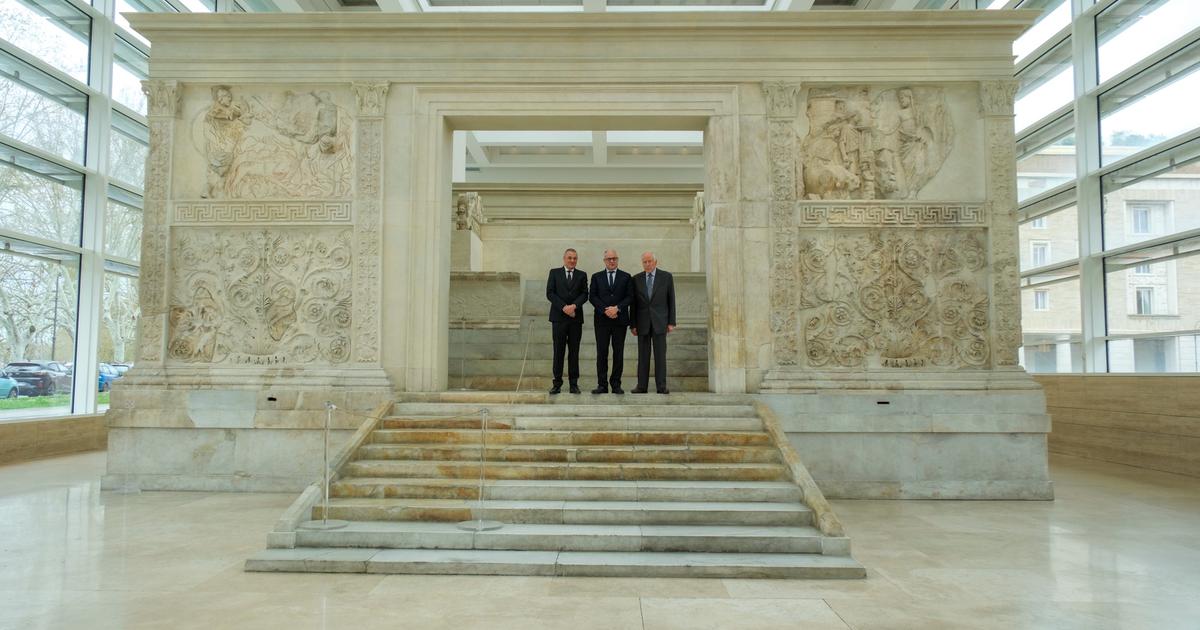A mountain of minerals, a sick African dictator and his four wives, secret accounts in Switzerland, a Brazilian company and the former Justice Minister of Jair Bolsonaro, Sergio Moro.
All these elements crossed on Friday in a Geneva court during the trial of tycoon Benjamin Steinmetz, a 64-year-old Israeli.
The case uncovered a plot to loot natural resources on the poorest continent in the world.
The controversial billionaire heir to a diamond empire was convicted of "corruption of foreign public officials" in one of the most iconic trials for the mining sector in decades.
According to the court, Steinmetz paid at least 8.5 million dollars in bribes between 2006 and 2012, to secure the right to exploit the Simandou iron mine, in the Republic of Guinea.
Gray hair, deep blue eyes, slightly tanned skin, despite the cold Swiss winter, Benjamin Steinmetz was presented by his lawyers in court as a kind of savior from Africa.
The official story says that the businessman, known as Beny, at the end of 2008 had paid 165 million dollars to the Guinean government for the concession of what would be the African version of Carajás - a Brazilian mountain range that has the largest cast iron mine. open world, plus reserves of three other minerals.
Some 18 months later, with a new government at the helm of the African country, it closed an agreement with the Brazilian mining company Vale, known for the disaster of the Brumadinho dam in 2019, which raised blisters among the members of the new Administration.
Steinmetz had agreed with Vale to exploit the Simandou mine for about $ 2.5 billion.
It appeared that the Israeli businessman had won the lottery, but the Swiss Prosecutor's Office accused him of having bribed to get the rights to the mine.
Through a “corruption pact” between Steinmetz, former Guinea dictator Lansana Conté between 1984 and 2008, and his fourth wife, Mamadie Touré, they took the mine out of the hands of the Anglo-Australian conglomerate Rio Tinto, Vale's global competitor.
The bribes, according to the Prosecutor's Office, were aimed at ensuring that Beny Steinmetz Group Resources (BSGR) had one of the largest iron reserves in the world.
The prosecution indicates that, in 2008, this consortium took advantage of the last hours of the life of the dictator Conté to obtain the concession of a part of the iron deposit.
The tycoon admitted during the trial that the profit for his company was large with the agreement signed with the Brazilian Vale.
“But the biggest gain is for the country, because there are taxes, royalties.
That changes everything, "he said.
"It was a dream for Guinea."
This Friday, the Swiss justice sentenced him to five years in prison and fined him some 56 million dollars for corruption of public officials and falsification of documents.
The billionaire has warned that he will appeal the sentence.
Its history reveals a little known history of the mining world and a social tragedy.
Simandou owns more than 2 billion tons of high-quality iron.
For experts, the mine could change the destiny of the country.
Guinea was already home to the largest proven reserve of bauxite, in addition to gold, diamond, uranium and oil mines.
Even so, it is still one of the poorest countries in the world: 70% of its population lives in slums, only a minority have access to sanitation services, and half do not even have clean water.
The connection with ex-judge Moro
Faced with accusations of corruption in recent years against Steinmetz, the Brazilian Vale sued him before the International Court of Arbitration, in London.
The miner won the case in 2019 and the Israeli businessman was forced to pay $ 2.2 billion in damages.
The court then noted that Steinmetz withheld information from Vale when they formed the partnership, such as paying bribes in Guinea.
Earlier in the week, when asked by the Geneva prosecution at the hearing about his defeat at the London court, Steinmetz said that his battle against the Brazilians was not over yet.
"There are new things that will come to light and will show that Vale lied."
The magnate last year hired the services of former Brazilian Justice Minister Sergio Moro to have more ammunition against the Brazilian mining company.
Moro has argued that Vale would not have the right to demand the money requested by the London court.
According to the former judge, if the investigations are confirmed, “Vale executives would have made false statements and fraudulently concealed from the market and its shareholders the true conditions of the business entered into with BSGR regarding the exploitation rights in Simandou and the reasons for its subsequent termination. ”.
In response to Moro, the company reiterated that it has judicial backing to request the money.
During the Steinmetz trial, the businessman was asked if he knew in 2008 that he was going to obtain the iron mountain concession to resell it to Vale and he said he did not.
He explained that before Vale he had contacted Chinese investors.
The billionaire insisted that when he acquired the concession, he did not know exactly how big it was.
"Nobody knew how much it was worth."
He also pointed out that the Brazilian company initially wanted to keep 100% of the project, something that he rejected.
His goal was to hold at least 51% of the shares of the company.
"But Vale demanded 51%," he explained.
The judge in the case, Alexandra Banna, questioned him why the government of a poor country would agree to sell the concession for 165 million dollars in a project that would soon be worth 2.5 billion.
"That's the world," replied the businessman.
According to his testimony, it is "common" for smaller companies to carry out risky work and then, for exploitation, look for partners.
"In most of the world it is like that," he added.
The history of the Simandou Mine is intricate and full of ups and downs.
In 2008, already ill and in the last days of his life, the dictator Conté withdrew part of the concession of the area from the Anglo-Australian conglomerate of Rio Tinto, claiming that it had missed development deadlines.
The right would then pass to BSGR, Steinmetz, on December 9, 2008.
Dictator Conté died less than 15 days later and the military took control of the country, west of Africa.
The turmoil continued and in 2009 the head of the new government fled after an assassination attempt.
None of this changed the exploitation plans of the foreigners.
After 18 months, Vale bought from Steinmetz 51% of BSGR, a transaction for 2.5 billion dollars.
What appeared to be the beginning of a new era for one of the poorest countries in the world would soon come to an end.
In 2012, Vale announced that it was abandoning mining, citing the collapse of international mineral prices amid an international economic crisis.
The biggest blow would come in 2014, when the new Government of Guinea revealed, after an audit, that the change of control over the Iron Mountain had been carried out through a plot of corruption.
Now, seven years later, in a court far from the African country, the details of that accusation have been presented.
Mamadie Touré, the former dictator's widow, said Steinmetz offered her husband money.
"I can give you a lot," he assured her.
According to the testimony of the fourth wife, the president, already ill and weak, responded in an unexpected way.
"I do not need money.
Look around you, ”he said referring to the luxury in which he lived.
Conté took power in 1984 after a military coup and for decades amassed a fortune incompatible with the poverty of its citizens.
However, he accepted the bribe from the tycoon on the condition that the businessman help his last wife.
“I'll do it for her.
Not for you ”, said Touré during the trial.
According to the prosecutor in the case, the ministers who opposed the government's move to transfer the Rio Tinto concession to Steinmetz ended up being removed from their posts.
According to the accusation, Conté no longer had control over the country at that time, it was his wives who decided.
Each of them had their role in the government.
Upon learning of the $ 2.5 billion settlement between the Israeli businessman and Vale in 2010, Conté's fourth wife rebelled.
Initially he had only received four million dollars in bribes.
But when Steinmetz sold the concession to the Brazilians, "she understood that they had cheated her" and that the mine was worth much more, the prosecution said.
The dictator's widow even tried to take the case to court.
To get him to quit, they paid him more money and he ended up earning twice as much, the prosecutor said.
During the trial in Geneva, the businessman denied the corruption charges, claimed that Touré “lied”, questioned the veracity of the documents and ignored all the evidence presented to the court.
One of the real obstacles that Judge Alexandra Banna faced was the fact that none of the named witnesses appeared in court.
When questioned by the magistrate, Steinmetz admitted that in Africa "blackmail and extortion are recurrent."
The prosecutor Yves Bertossa insisted during the process that they had a lot of evidence against the tycoon, such as emails and bank transfers: "We have everything."
"But it's the magic corruption, nobody paid," he scoffed.
In one of the documents, those involved in the business speak of the need to ensure that the "sugar" reaches the "lady".
Expression that the prosecutor understands as a reference to the bribery of Touré.
Another factor that weighed on the accusation was the arrest of Frédéric Cilins, one of Steinmetz's intermediaries, in the United States.
The arrest at a Florida airport came after wiretaps revealed that the executive offered Touré money to destroy any evidence of the bribery.
As if that were not enough, Conté's own wife, to avoid imprisonment in the United States, opted to collaborate with the investigations and recorded her conversations with those who had made the deposits.
For Steinmetz, what happened was political persecution.
"They didn't want our company there," he defended himself.
“They are going to be poor, as they are now.
It is a tragedy what has happened.
If the mine had been exploited, it would have generated four times the country's GDP.
Ten years later, there is nothing.
The project was stopped for corruption.
Not mine.
But yes from other people ”, he declared.
Prosecutor Bertossa insisted that what the magnate did was despise the institutions of a poor country.
“In 2005, when the mine was under Rio Tinto's control, the population received nothing.
In 2010, with BSGR, he still has nothing, "he said.
The benefit went to the dictator's wife and the company.
"They were the only ones who made millions," he stressed.
“We are in one of the poorest countries in the world, with a sick president, a people on strike.
A vulnerable country and under this situation is where the concession is given ”.









